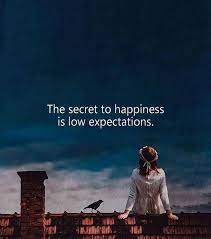“If you tremble with indignation at every injustice, then you are a comrade of mine” Che Guevara
On 9th October 1967, socialist revolutionary, guerrilla leader and the main man behind Cuban revolution, Che Guevara, age 39, was killed by the Bolivian army.
The Argentine-born revolutionary, a major figure in Fidel Castro’s ‘26th of July Movement’ which seized power in Cuba in 1959, had been fighting with a small band of guerrillas in the South American country when he was captured by the army near the village of Higueras.
Since his death, Guevara has become a legendary political figure, a symbol of radical revolution, often referred to as the ‘literary militant’. His name is often equated to an intellectual rebellion.
On 11 October, exactly 3 days after the. 51th death anniversary of Guevara, a Kashmiri rebel who bore a a striking semblance to him, both by face and by the events that transpired in his life was rumoured to have been killed by Indian armed forces in an encounter in Handwara village. The news created a simmer all over valley . While initially there were confounding reports about his death, it was later confirmed by the police that the rebel, a doctor in his own field just like Che, had been gunned down along with two of his associates.
While Ernesto’s beret with a red star, his eternal good looks and the Cigar had caught the attention of millions of people of his time, the rebel too, with his masculine jaw-line, a coarse beard and fluffy long hair, carrying a deadly AK-47, had stuck the social media with a disconcerting awe. The Facebooks and Twitters were swarmed by his images, some as profile pictures or cover photos and others in the articles which were penned down in his veneration or condemnation.
Both Guevara and him had started their lives with a humble backdrop, from oblivious families. Che’s favourite subjects in school included philosophy, mathematics, engineering, political science, sociology, history and archeology. The rebel too would show interests in history, sociology and political science from very childhood. He grew up in a politically invigorating ambience of Kashmir, where the days started with a political discussion and the nights fell with debates and historical conjectures, and just like Guevara, he had been exposed to a wide spectrum of political perspectives as a boy. Both had grown up witnessing miseries of the people that shaped the later part of their lives.
During adolescence and throughout his life Guevara was passionate about poetry, especially that of Pablo Neruda, John Keats, Antonio Machado, Cesar Vallejo, and Walt Whitman. He enjoyed the works of Franz Kafka, Albert Camus, Vladmir Lenin and Jaun Paul Sartre; as well as H.G Wells and Robert Frost. Many of these authors’ ideas he cataloged in his own handwritten notebooks of concepts, definitions, and philosophies of influential intellectuals. Just like Guevara, the Kashmiri rebel too had had a penchant for reading from the very boyhood. He had shown interest in the essays of Leo Tolstoy, Ernest Hemingway, Erich Maria Remarque and various fiction and political writers.The ideas imbued from them would later reflect in his own writings. He maintained a blog and would often quote his ideations from the speeches and writings of the revolutionaries like Malcom. X. While the rebel was greatly moved by Islamic philosophy and monotheism, Guevara found his impetus in socialist ideas.
After graduating from high school with honours, Guevara studied medicine at the University of Buenos Aires, but in 1951 he left the school to travel around South America with a friend, where he witnessed the sufferings of the poverty stricken people and his conviction, that only an armed struggle could end them, deepened further. The rebel too sought admission in one of the best institutes of India. He was awarded with a masters degree, finished his M.Phil and was pursuing the prestigious Doctorate but left it half way to pick up arms in a corporeal proclamation of his convictions; that only an armed struggle, according to him, had a potential to end the occupation, which was otherwise left unbridled with every peaceful political discourse.
Apart from being an arduous reader and a valiant guerrilla, the Cuban revolutionary was a prolific writer, and his works provide both personal and political insight even today, as the Centre for Che Guevara Studies in Cuba continues to publish his articles and speeches. He was greatly driven by the desolation of those around him. He published numerous of his works during his lifetime and many of his writings are published even now, 51 years after his death. They were as much a matter of concern back then as they are today for the capitalist corridors.
The Kashmiri Rebel’s write-ups, with a stupendous literary professionalism and poignance, touched upon a wide range of topics, delineating the difference between violence and self defence, the complex functioning of occupation and facets of armed and literary resistance, the goals and mechanisms of surveillance, the role of Islam and religion in a revolution, the hegemony of the occupier in the colonised territories, the treatment of minorities and political adversaries and his own justifications of having preferred to carry both the gun and a pen for his battles. The state was left in an absolute muddle by the impact that two of his letters had created, his words were resounding with an absolutely unapologetic and unyielding belligerence to every bawl and threat of subjugation. It seemed that the ink rendered by him had caused more trouble than the blood that he would ever spill.
Striking similarities could be seen in the writings of Guevara and the rebel. Guevara was a strong believer and proponent of revolution and uprising of the people to overthrow the existent larcenous. dichotomies. He believed that ‘revolution was not an apple that will fall when it is ripe, you have to make it fall’. He believed in risking his life and skin to prove his platitudes.The rebel believed that a place where the interests of the occupier ran supreme, the undeclared war on a civilian population was the modus operandi and politics was a prostitute, restoring one’s dignity by non violence was a false hope. Both Guevara and the rebel had strong belief that the hegemony which thinks through the barrel of the gun, the response to it could not be a peace talk. Both were sure of whatever they believed in. Many wondered what took place in the mind of the young Kashmiri, to transform him into the man of weapons, for if he had not become a militant, he would most certainly become a great writer. Similar remarks were made by the associates of Guevara after he had been killed, that had he not been an intrepid guerrilla he would have been an audacious writer or a poet.
Movements of resistance, rebellion, revolt and revolution have always been rich in symbols. Even today the portraits of Guevara , with his beret and a cuban cigar, find their way on T-Shirts, banners and postcards as a sign of radical revolution for those who are underrepresented in the capitalist society. After the death of the rebel his portraits and sketches, with his long trailing hair were afloat on the internet, he was adulated as a token of intellectual and armed discontent. His admirers venerated him as a symbol of resistance while his adversaries tried to portray him as a hieroglyph of political discomposure.
Che Guevara, during and after his lifetime, had been a topic of discussion among the common folk and the academicians, if the way he chose was justified and could he have done more for the humankind with his pen than with his gun. The path that the rebel chose was debated as well, Could he have contributed more to the cause he believed in with a pen between his scholarly fingers rather than the gun around his brave shoulders. A question that only the time can answer.
(While the rebel mentioned in the story drew his ideas from the tenets of Islamic Philosophy, Che Guevara was a staunch supporter of communism, as such no attempt to compare the two on their religious and moral beliefs is made. The write-up is simply an account of resemblance between the life events)
Khan Khawar Achakzai
Writer is a published author and a social activist, he is a doctor by profession and practices in Kashmir valley





